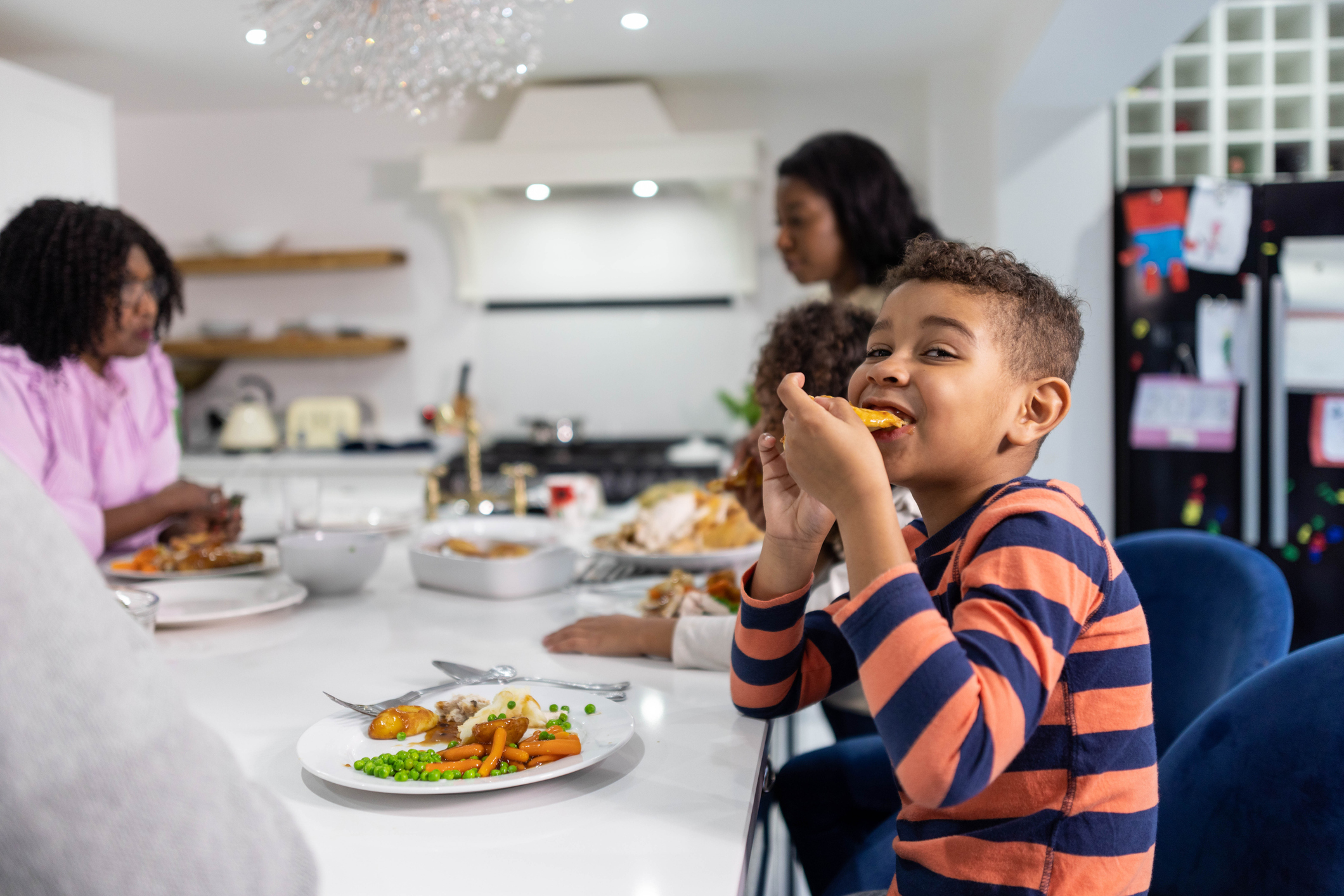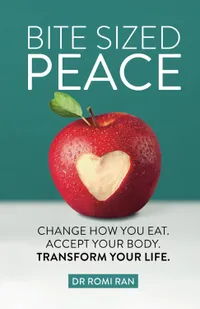“This means you have to be ok with letting them leave food on their plate” - Expert shares advice on helping kids have a healthier relationship with food
How can you help your kids have a healthy relationship with food? Dr. Romi Ran shares her top tips for encouraging positivity at the dinner table...


Parenting advice, hot topics, best buys and family finance tips delivered straight to your inbox.
You are now subscribed
Your newsletter sign-up was successful
It can be hard in the midst of dinner-time madness to create a calm, positive outlook on food, especially if mealtimes are a common battleground between you and your kids.
Fortunately, Dr. Romi Ran, a Clinical Psychologist specialising in working with people with food, eating, and body image issues, has shared her expert advice and insights into how we can help our kids to have a healthier relationship with food - starting with family meals and fussy eaters at your dinner table today.
“The seeds of a healthy relationship with food are sown long before a child can make their own choices. Establishing a positive relationship with food can start as early as infancy. By respecting a baby or toddler’s natural cues for hunger and fullness, parents can instill a sense of trust in their bodies, laying the foundation for healthy eating habits that last a lifetime,” says Dr. Romi Ran, author of Bite Sized Peace - Change How You Eat, Accept Your Body, Transform Your Life.
Dr. Ran explains that parents play a key role in helping children develop a positive relationship with food and that it’s important for parents to demonstrate healthy eating habits for their children to follow suit; “Parents are not just caregivers but the first and most influential nutritionists their children will ever know. It's crucial for parents to embody the healthy eating habits they wish to instill in their children. This means choosing a variety of foods, showing enjoyment in eating, and avoiding negative talk about body image and dieting.”
She continues, “If you're grappling with food issues yourself, masking them won't fool your kids—they're incredibly perceptive. To truly support your children in developing a healthy relationship with food, it's essential to address your own challenges first. Seeking assistance for yourself is a powerful step towards not only your well-being but also setting a positive example for your family.”
If you've left wondering, what does healthy eating really look like, continuing on, Dr. Ran shares her top six tips for encouraging positivity at the dinner table...
A post shared by Dr Romi Ran | Psychologist
A photo posted by drromiran on
How to help your kids have a healthy relationship with food
1. Create a positive food environment
“Make the dining table a place of joy, discovery, and connection, not a battleground over expectations, bites, and behaviors. Encouraging a positive mealtime atmosphere where food is not just nourishment but also an opportunity for family bonding can significantly influence a child’s relationship with food,” says Dr. Ran.
Parenting advice, hot topics, best buys and family finance tips delivered straight to your inbox.
2. Mindfulness and intuitive eating
“Teaching children to eat mindfully and to understand their body's cues is like giving them an internal compass for a lifetime of healthy eating. Encouraging children to listen to their hunger and fullness signals, to eat slowly, and to enjoy the sensory experience of eating can help prevent overeating and foster a healthy relationship with food. This means you have to be ok with letting them leave food on their plate, or eat outside of scheduled mealtimes!”
Teaching children to eat mindfully and to understand their body's cues is like giving them an internal compass for a lifetime of healthy eating.
3. Diversity and exploration
Dr. Ran says; “Expose children to the world through their plates. Introducing a wide variety of foods from an early age can foster curiosity and appreciation for different cultures and tastes. It's about expanding their palates - and consequently their minds - and making each meal an opportunity to learn and grow.”
4. The emotional connection to food
“It’s important to recognize and respect the emotional aspects of eating, teaching children healthy ways to cope with emotions without relying on food for comfort is extremely important. But also showing them that food can be used to enjoy, and sometimes is excellent to help soothe us if need be, it just has to be done with awareness and understanding.”
By making children part of the process, they are more likely to feel invested in their food choices and excited about trying new things
5. Education through engagement
“Involving children in meal planning and preparation allows them a hands-on experience in responsibility, creativity, and independence. By making children part of the process, they are more likely to feel invested in their food choices and excited about trying new things,” says Dr. Ran.
6. Celebrating progress, not perfection
“Celebrate the small victories at the table. Recognizing and praising efforts to try new foods or the willingness to taste something they previously disliked can encourage a positive outlook on food exploration.”

Dr. Romi Ran is a Clinical Psychologist specialising in working with people with food, eating, and body image issues. She is the author of Bite Sized Peace - Change How You Eat, Accept Your Body, Transform Your Life. Her approach challenges societal views and myths relating to diets, eating, and weight. She supports clients to be their own experts and not rely on the advice (or rules) of others to nourish themselves. Romi's methods include teaching people how to eat when they are hungry; choosing foods that nourish their bodies; stopping when they are full; and eating mindfully.
Bite-Sized Peace - Change How You Eat, Accept Your Body, Transform Your Life - View at Amazon
With over 15 years experience Dr. Romi Ran shares her insight into reshaping your relationship with food, cultivate better eating habits, boost your body image, and fundamentally transform your life in her latest book, Bite Sized Peace. Understand how your eating patterns reflect and impact other aspects of your life, including your relationships, career, and overall well-being.
Wondering how to eat more fruit and veg? Scientists reveal the one thing you can do to encourage your child to get their vegetables. We've also got plenty of information on what counts as your five-a-day portion sizes - for example, did you know that 14 button mushrooms count as one of your five-a-day?

Jessica Dady is Food Editor at GoodtoKnow and has over 12 years of experience as a digital editor, specialising in all things food, recipes, and SEO. From the must-buy seasonal food hampers and advent calendars for Christmas to the family-friendly air fryers that’ll make dinner time a breeze, Jessica loves trying and testing various food products to find the best of the best for the busy parents among us. Over the years of working with GoodtoKnow, Jessica has had the privilege of working alongside Future’s Test Kitchen to create exclusive videos - as well as writing, testing, and shooting her own recipes. When she’s not embracing the great outdoors with her family at the weekends, Jessica enjoys baking up a storm in the kitchen with her favourite bakes being chocolate chip cookies, cupcakes, and a tray of gooey chocolate brownies.
